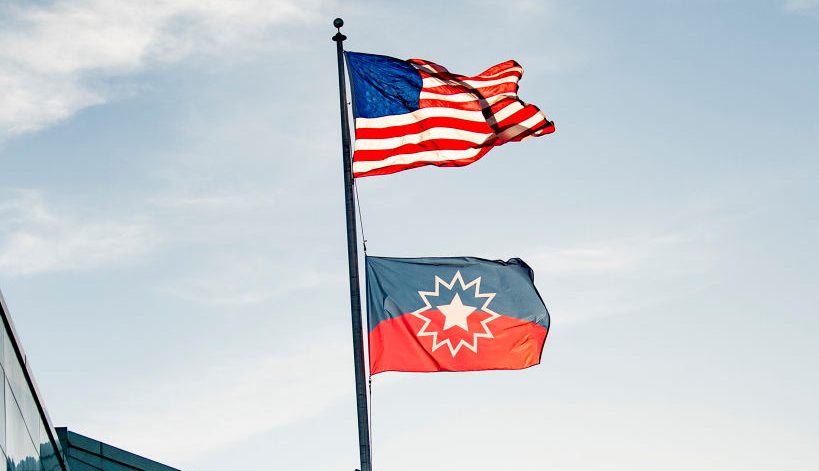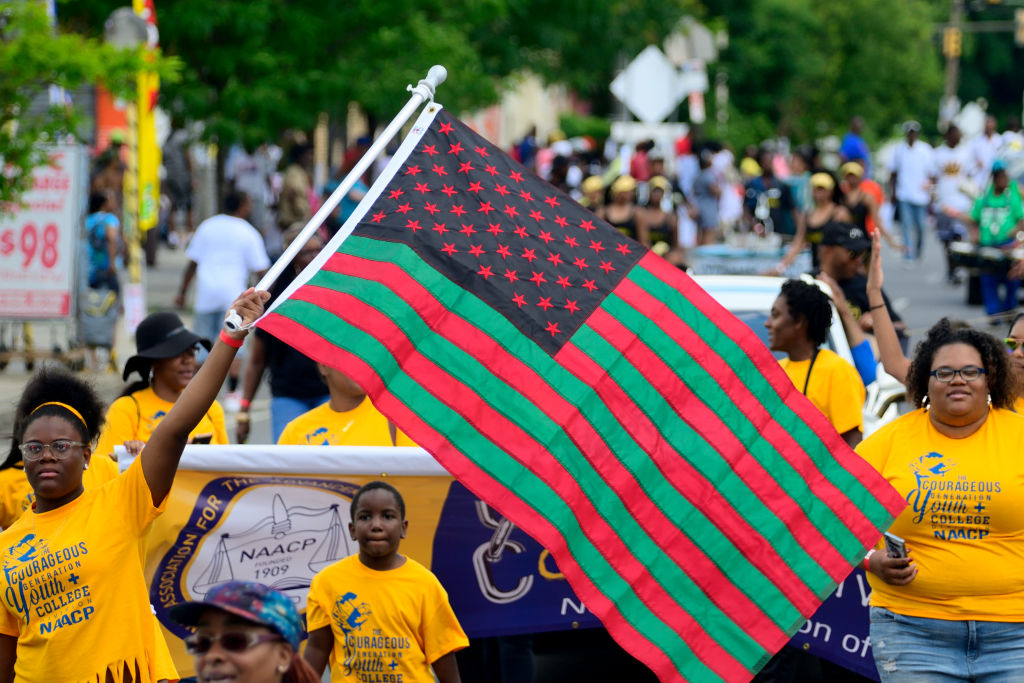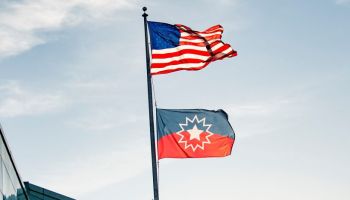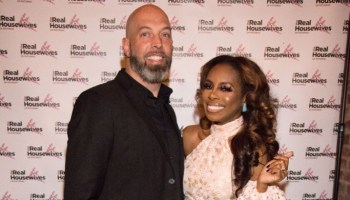
Source: Billie Weiss/Boston Red Sox / Getty
Black Americans have been fighting for access to Juneteenth for almost half a century (longer in many areas). As a celebration of the freedom Black slaves were owed in Texas for years, it is a well-earned acknowledgment of the suffering and perseverance our community faced the last 500 years.
It’s on the back end of every topic discussing America’s hypocrisy. It sits in the heart of Black Americanism — just beside the Black American flag and the Black National Anthem. It is the culture of Black America that is ignored and trampled upon by the world at large. And in 2020, the country is finally listening that it is a worthy day of celebration with 47 of the 50 States (and the District of Columbia) in America formally recognizing it in one way or another: and it is the first time the day does not feel like it belongs to us anymore.
I want to believe this is the first time since Hip Hop went mainstream that a man of my family could feel this, but I’m not convinced that it is. As I’ve felt it when cities sprung up across the country to remove effigies of slave owners and racists from city squares and barks; as I’ve felt when the first round of emails of Black solidarity went around in light of George Floyd’s passing. It’s watching a commercial in 2003 geared to the “urban market,” and knowing that not a single Black voice was considered. That my culture is appropriated, it is not a new sensation. However, that my culture is shoe-horned publicly, commercially, and politically is a problem.
On the timeline, author Bassey Ikpi respectfully reflects on the idea that Juneteenth would still belong to Black Americans as a farce. And it’s true. Juneteenth, like Black History Month, will fall out of Black hands. It is likely the only federal holiday that will garner national recognition that sits directly outside of a white gaze; that it isn’t for white people, but that will not fly for more than a year.
Capitalism is an ugly hydra of a creature. You decapitate one head you recognize, and it will always try to grow itself a new face with fangs, and tongues and a brain that learned from the visceral cut of the previous weapon. And it will always have a taste for constructs formerly rooted in Blackness that it will knowingly exploit.
Black Americans have shared so much with the world. Black American rarely receive credit for it, or the love for it in a national sense. In many conversations on Global Blackness, our Blackness is erased in favor of our easily targeted Americanness despite its dark danger to our humanity. We’ve coined the term “Diaspora War” as a jest about a very real presence in West African communities which erases us from the kinship.
Black Americans have shared so much with the world.
Whiteness disdains to admit that much of its personality is flavored by the culture and innovation of Black Americans. A year ago, I shared the long history of cultural theft for Black Music History Month, which conveniently does fall during June along with Pride Month — two significant events rooted in the contributions of Black people (Pride Month being a commemoration of Stonewall, a riot summoned by Marsha P. Johnson, a trans activist). And yet, music criticism is co-opted today by white people at even the Black targeted publications and media; and the LGBTQ+ community has garnered an incorrect representation of whiteness, while much of it does, in fact, belong to the Black Trans and Queer people often ostracized in these same communities by equally racist white gay men.
So, what do we make of Juneteenth being thrown at us like a treat? Deep down, I have to admit it feels like a pacification. To be handed something after nicely asking for it after years does not bode a sense of respect for it or the community represented within it. It doesn’t bode proper confidence.
In fact, this is reminiscent of the lies of Thanksgiving, where we learn of the generosity of the pilgrim to the Indigenous people of North America. We trick children into cutting out paper hats and feathers playing nice when we know the bloodsport made of the real people in the past and the brutal economic callousness our government treats their holy places with today. To this day, there are still make-up gurus who disrespectfully post their “Native Inspired” looks onto Youtube and a subsequent apology video twenty-four hours later.
What can we expect in the next five years? Black Panther revolutionary costumes? Trendy southern slave apparel? Afro-American make-up tags? Many places have already established that Blackface is not a fireable or condemnable offense, so my imagination cannot stretch far enough to offer anyone the benefit of the doubt.

Source: NurPhoto / Getty
And still, my question falls to the wider Black American audience of why did we need the U.S. to nod in agreement that our history had to be celebrated by them too? President Donald J. Trump doesn’t care about Juneteenth; and many racists before him didn’t care about Juneteenth. But, we remember it and it followed us through the Great Migration when Black southerners became the New Negroes and the New Negroes became African-Americans, united and diverse in our many arrays of colors and powers.
I’m not one to think that everyone has to agree with me to receive equality. Echoing Black revolutionary Angela Davis, I do not want to walk in solidarity with everyone and that doesn’t make me angry or outraged, though it might make me skeptical. It means that I appreciate those who educate themselves and authentically change their minds more than people who agree with me simply to seem right, or to seem as if they get it. And this shift feels too inorganic. It feels like gentrification and that is frightening for what it means to the things that belong to Black Americans by culture, because we aren’t allowed to keep everything and if Motown and Publishing and Black Hollywood has taught me anything, it’s to beware of the Mainstream and all it offers in comfort and acceptance.
Conformity for Black folk means chains. And Juneteenth is meant to be about unshackling.
Can Black Americans Keep Juneteenth Black Owned? was originally published on cassiuslife.com
















